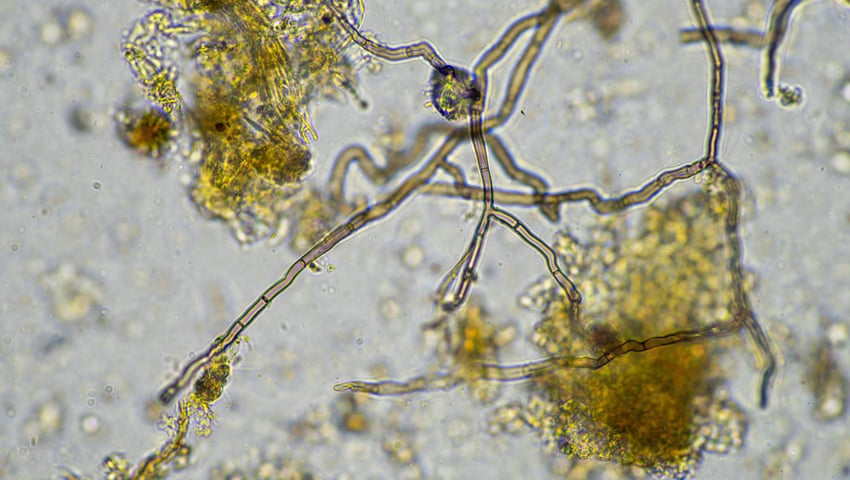A dairy farmer is introducing hundreds of species of beneficial bacteria, fungi, protozoa and nematodes into his farm soils in a bid to create the healthy ecosystem he needs to support grass production without inputs.
Sam Carey is aiming to develop a sustainable and profitable no-input dairy farming system at Mathafarn, Llanwrin.
He recently converted the former beef and sheep farm to support low/no input spring calving dairy production with emphasis on soil health and taking a regenerative approach.
Carey sees his soils as his biggest asset and is introducing an innovative approach that could further increase soil biology.
With support from the Farming Connect Try Out Fund he is trialling the effectiveness of a product incorporating beneficial bacteria, fungi, protozoa and nematodes which have been grown using compost as an incubator.
If successful it would accelerate Carey’s regenerative, business and production targets.
Carey said, “I am very grateful of the Try Out Fund, it is enabling us to push boundaries, try alternative methods and test unknowns.”
Six fields at Mathafarn have been divided in two with the product applied to one half and with no intervention in the other.
A different application rate will be used across the trial plots to determine which has the biggest influence.
Grass growth will be monitored through the 2024 growing season and the mineral status of swards will be analysed. Soil infiltration changes are being examined too and soil tests carried out to assess soil biology changes.
Carey, a Farming Connect mentor, has long taken an interest in soil and soil health – but an online soil health course run by internationally recognised soil microbiology expert Dr Elaine Ingram was his catalyst to submitting an application to the Farming Connect Try Out Fund. This initiative funds individuals and groups of farmers and growers to experiment with ideas and bring them to life.
Not only does Carey hope to eliminate chemical inputs entirely and their threat to watercourses but to increase the amount of grass he grows, and its quality too.
If he can improve soil infiltration rates the land will present less of a run-off risk and be less prone to flooding.
The project will conclude in February 2025 when the results will be shared with other farmers.
